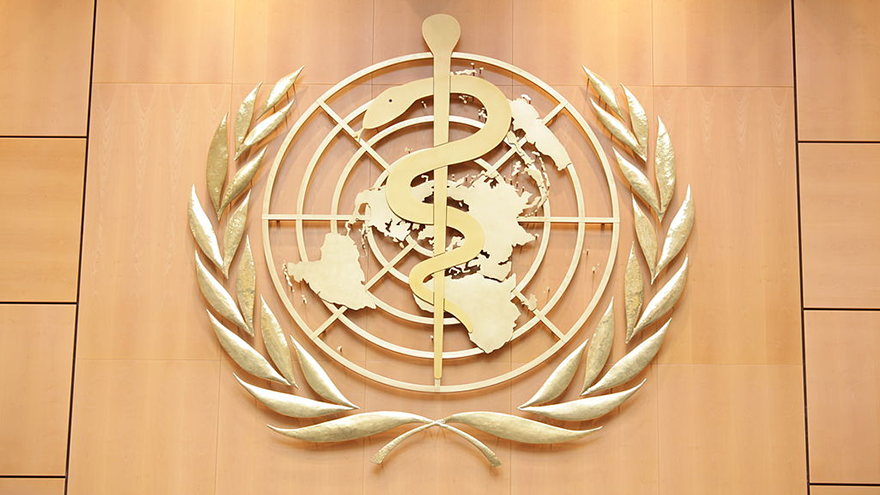WHO rules global health?

As the coronavirus pandemic devastates health systems worldwide, several governments have called for an independent review of the handling of the international response to the emergence of the novel coronavirus. In particular, such a review would examine the role of the World Health Organisation (WHO), the chief global health coordinating centre, which has faced critique in its response to the crisis. It's a blow to the organisation, which just a few weeks ago suffered a financial hit as the United States suspended over $US 400 million in its funding, representing just under one tenth of its annual budget. The critique of the WHO comes at a time where scrutiny on global health governance has never been so salient, yet the need for effective governance so great. So, what is the World Health Organisation, what is their role in global health governance, and who actually rules global health?

The need for international cooperation on global health is indeed not a new concept. Both infectious and non-infectious diseases alike have long demonstrated a disregard for borders. The WHO was formed in 1948 as an independent arm of the United Nations, in response to the call for greater institutional multilateralism in the aftermath of the second world war. It built on previous efforts for cooperation in global health through institutions such the International Sanitary Convention, which had been tasked with addressing outbreaks such as cholera. Since its establishment, the WHO has been credited with a number of key successes, including the eradication of smallpox, the wide dissemination of immunisation programmes, the Declaration of the Alma Ata which prioritised primary health care, and its strong efforts towards tobacco control. However, faced with an increasingly globalised and interconnected world and newer challenges such as climate change, migration and a growing burden of chronic disease, the WHO is now facing an increasingly complex and interdependent health agenda.
A key obstacle to the WHO’s success has been the fragility of its funding structure, limiting it in both resource and institutional capacities. While the WHO was designed to receive primary funding through regular contributions from member states, it has become increasingly dependent on voluntary contributions from state and/or private philanthropic institutions. In many cases, these voluntary commitments may be earmarked for specific purposes, thereby influencing investment priorities. Such limitations in the WHO’s funding have helped give way for organisations such as the World Bank, The Global Fund and private philanthropic institutions to exert profound influence on the global health stage. For example, in 2017 the Bill and Melinda Gates Foundation, one of the largest private philanthropic donors, contributed over $US 3 billion to global health.
It is on this backdrop that the WHO has faced a series of critiques over the past five years, regarding first their handling of the 2014–2016 Ebola outbreak in Western Africa, and more recently their response to COVID-19. During the Ebola epidemic, the WHO was widely condemned for its five-month delay in declaring an international emergency after the first case had been confirmed. Several prominent reviews (such as those in The Lancet and Chatham House) published in the post-Ebola period argued strongly for a more focused WHO, with consolidated core objectives including stronger investment in issues of global health security such as pandemic preparedness, and a strengthened central advisory role. Others, however, argued that the WHO was losing its relevance amidst a top-heavy bureaucracy and a platitude of structural inefficiencies.
Faced most recently with the newest challenge of COVID-19, the WHO has again fallen under scrutiny for its delay in declaring the pandemic and for purported captured interests, raising again the question of whether it remains relevant to the global health agenda of the 21st century. However, at a time where the need for global cooperation has never been so great, we should take care in seeking to weaken or dismantle this institution which was founded upon a fundamental recognition of the power of collective action. Indeed, a reversion to protectionist principles and a withdrawal of funding from the WHO, would deprive us of the international cooperation that will be essential to successful navigating the months that lie ahead.
As countries worldwide compete in the newest ‘space race’ to develop a vaccine or anti-viral therapy effective against COVID-19, the WHO will provide an imperative platform for information sharing, amalgamating evidence and facilitating efficient approaches to upscaling of production and distribution. Here, the WHO has an opportunity to provide the regulatory blueprint for international cooperation that protects intellectual property and incentives for research while allowing all countries access to cost-effective therapies. As the burden of coronavirus disease shifts, with time, to our developing country neighbours, the WHO will provide an essential voice in advocating and facilitating mobilisation of resources, as well as providing the infrastructure to evaluate the burden of disease within these settings.
The years to come will bring light to how the WHO must evolve to better serve the health needs of today’s society. However, as we look with scrutiny at the WHO, we should also take pause to introspect on the reasons that this institution has been long neglected, despite long voicing the risks of pandemics such as that which we now face. Indeed, if we expect the WHO to achieve greater influence in global health governance, the first step may be for us to provide it with the funding, resources and authority it needs to get there.
Danielle Fitzpatrick (MPP 2017) is an alumna of the Blavatnik School. She is currently working as a medical practitioner in Australia, where she is training in intensive care medicine, and holds a Policy Fellow position with the Centre of Policy Development in Melbourne, Australia.
The views in this article are those of the author alone, and do not reflect views held by any organisation with which she may be affiliated.
